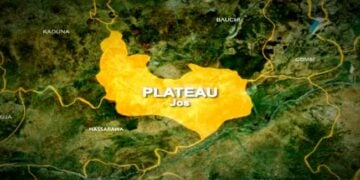Pharmaceutical Society of Nigeria (PSN) has called for the immediate suspension of the current Standard Operating Procedure (SOP) for the Drug Revolving Fund (DRF), citing the significant debt load on the programme and a lack of financial sustainability.
PSN president, Prof. Cyril Odianose Usifoh, who made the call, at a press briefing on the upcoming PSN’s 97th Annual National Conference, on Tuesday, in Lagos, highlighted the challenges facing the DRF programme, which was designed to ensure continuous drug availability through reinvestment of drug sale revenues.
LEADERSHIP Sunday findings revealed that as of 2021, over N30 billion was owed to the pharmaceutical industry under the Drug Revolving Fund (DRF) by federal and state agencies, teaching hospitals, federal medical centres, parastatals, and other institutions.
“When I came on board, we found that the DRF was comatose, with substantial funds owed to manufacturers,” Usifoh stated.
He explained that some suppliers have been pressured into providing additional stock as a condition for payment on previous supplies. “With the increasing exchange rate affecting payouts, manufacturers often receive payments that are not commensurate with the value of goods delivered, making it financially unsustainable. This economic strain has forced some companies to leave the Nigerian market, transferring their franchises to others,” he stated.
Usifoh commended recent government action, noting that the administration had written to chief executives of federal and tertiary health institutions to assess the DRF’s status. “Some responded, while others didn’t,” he shared, adding that follow-up efforts had been made to gather information.
Usifoh pointed out that despite challenges, PSN pursued data collection efforts with industry stakeholders and identified that debts had climbed into the billions, saying federal institutions have shown hesitation in disclosing full details due to internal pressures.
The PSN president also criticised inconsistencies in the SOP, citing two separate documents issued by different authorities, which have left stakeholders confused. “We need to harmonise these procedures and include stakeholders in decision-making. Creating SOPs without operator input is counterproductive and often results in policies that burden rather than support healthcare facilities,” he argued.
Usifoh emphasised the impact of these challenges on the cost and accessibility of quality medications, while expressing concern that profit-driven practices could make essential drugs unaffordable for the average Nigerian.
“Affordable drugs in the right doses and quality are critical. The government must prioritise access to ensure that all Nigerians benefit from effective and safe treatments,” he stated.
We’ve got the edge. Get real-time reports, breaking scoops, and exclusive angles delivered straight to your phone. Don’t settle for stale news. Join LEADERSHIP NEWS on WhatsApp for 24/7 updates →
Join Our WhatsApp Channel










